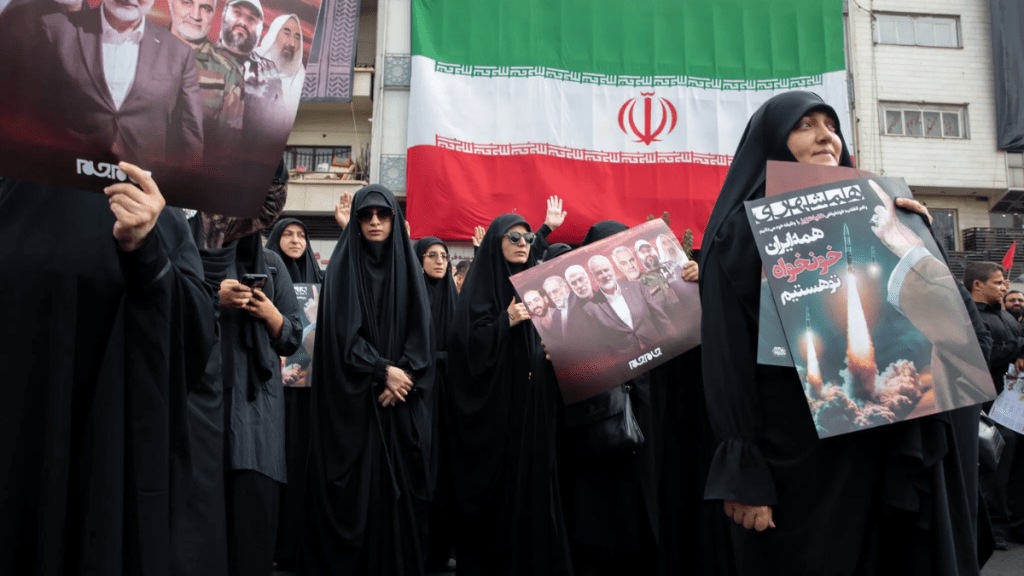By N Chandra Mohan
The assassination of Hamas’s political leader, Ismail Haniyeh, in Tehran — shortly after Israel’s strike on a senior Hezbollah commander, which was in retaliation to a rocket attack in Israeli-occupied Golan Heights, killing a dozen children — threaten to escalate tensions in West Asia. There are heightened risks of the conflict spilling over from Israel to Lebanon and Syria, ultimately involving Iran, for supporting Hamas and other militias like Hezbollah in Lebanon and the Houthis in Yemen. Israel is confronted with a probable response from Hamas and Hezbollah for the attacks on their leaders, besides from Iran itself. Hamas’ armed wing has said that the Haniyeh’s assassination will “take the battle to new dimensions and have major repercussions”.
Haniyeh was the diplomatic face of Hamas and was closely involved in the negotiations for a Gaza ceasefire mediated by the US, Egypt, and Qatar. He was perceived to be a moderate — in contrast to the militant hardliners in the resistance group — who pushed for a deal and compromise. In April, three of his sons and grandchildren were killed in an Israeli air strike in Gaza. His departure leaves the ongoing ceasefire talks in limbo. According to Qatar’s Prime Minister, “Political assassinations and continued targeting of civilians while talks continue leads us to ask, how can mediation succeed when one party assassinates the negotiator on the other side?” Clearly, his killing has only made the efforts to end the 10-month war in Gaza more elusive.
Israel, for its part, has taken a huge gamble in targeting the Hamas and Hezbollah leadership and risks opening up a multi-arena conflict in West Asia. PM Benjamin Netanyahu has said that Israel “will exact a heavy price from any aggression against us on any front”. Israel can, of course, count on the ironclad support of the US in this regard but the latter does not want to be drawn into a regional conflict. International shipping through the Red Sea has already been seriously disrupted by the Houthis. Despite the raging war between Hamas forces and Israel’s army since October 7 last year, a noteworthy feature is that global oil prices have so far not flared up. But all of this could change with a wider conflagration in West Asia and impact the world economy.
All of this is bad news for the US, that has pushed for a ceasefire deal between Hamas and Israel with a proposal President Joe Biden outlined on May 31, which was endorsed by the UN Security Council on June 10. The prospects remain elusive as the protagonists have neither accepted nor rejected the proposal. Nothing exemplified the complexities of ensuring a ceasefire deal more than Biden’s response to a question by Time magazine as to whether Israel’s PM was prolonging the war for his own political ends. “There is every reason for people to draw that conclusion,” Biden said. He later downplayed that comment but there is undoubtedly frustration over the different voices in Israel regarding his three-stage ceasefire deal.
While presenting the proposal — which the US indicated was Israel’s — Biden stated that it’s time for this war to end, for the day after to begin. According to him, Hamas has diminished capabilities and is no longer capable of carrying out a major attack on Israel like it did on October 7. But Israel does not see it that way. Netanyahu’s political survival crucially depends on the support of ultranationalist and religious extremist groups who want the 10-month-long war to continue until Hamas is totally destroyed. Of Hamas’ 24 battalions, each about 1,000 strong, as many as 20 have been reportedly “dismantled” by Israeli forces. After Haniyeh’s death, all eyes will be on Yahya Sinwar, military leader of the group in Gaza, on how he takes forward the fragile ceasefire deal to end the war that has killed around 40,000 Palestinians and threatens full-blown famine conditions for Gazans.
The author is an economics and business commentator based in New Delhi
Disclaimer: Views expressed are personal and do not reflect the official position or policy of FinancialExpress.com Reproducing this content without permission is prohibited.


